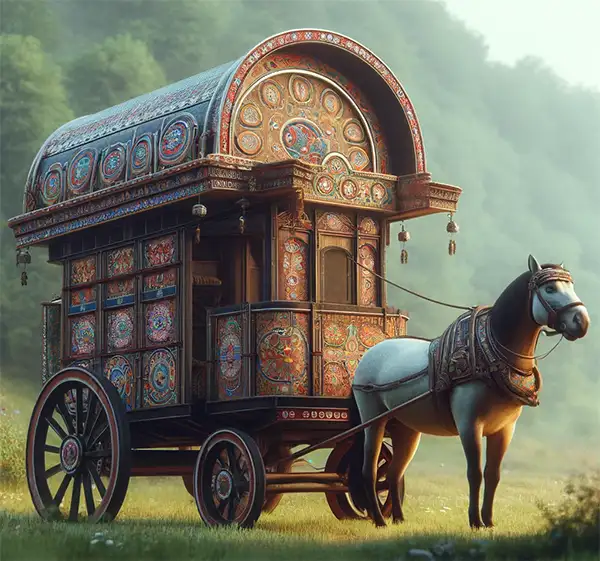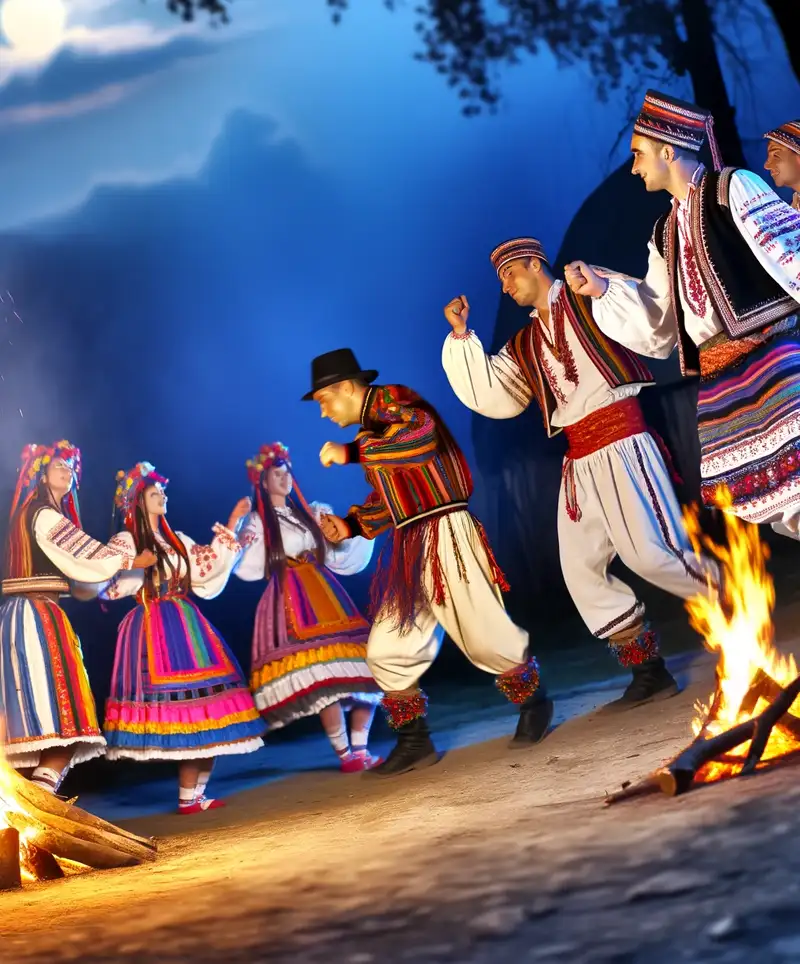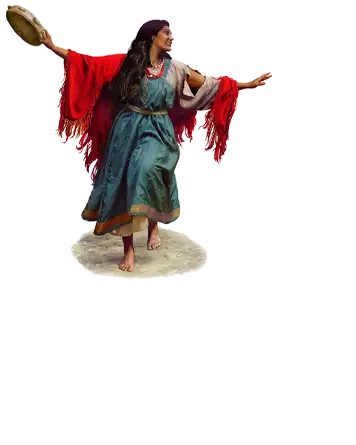A Celebration of Culture and Resilience
Every April 8th, communities around the globe celebrate International Romani Day, a vibrant tribute to the Romani people, their rich culture, history, and their contributions to society. This special day not only sheds light on the unique traditions of the Romani, but also highlights the challenges they have faced throughout history and continue to face today.
What is International Romani Day?
International Romani Day, celebrated on April 8th, serves as a dedicated moment to honor the Romani people and their rich cultural heritage. The day was first officially declared during the fourth World Romani Congress held in Serock, Poland, in 1990. This pivotal gathering brought together Romani representatives from across the globe to unify their voices in celebration and advocacy. The creation of International Romani Day marked a significant acknowledgment of Romani culture and their contributions to global societies, as well as a unified stand against the discrimination they often face.
This day not only fosters appreciation and understanding of Romani cultural practices and historical contributions but also serves as a vital platform for addressing the social injustices that the Romani community endures. It highlights the need for political and social recognition and provides an opportunity for governments and individuals alike to promote policies and attitudes that support integration and equality.
On International Romani Day, events are held worldwide—from local community gatherings and educational seminars to larger cultural festivals and political debates. These events aim to educate the public on the realities of Romani life, celebrate their cultural richness, and address the persistent challenges they face, such as exclusion, prejudice, and misunderstanding.
 By commemorating this day, the global community is reminded of the importance of diversity and human rights. It is a call to action to both celebrate the myriad contributions of the Romani people and to stand against the discrimination they confront in many parts of the world.
By commemorating this day, the global community is reminded of the importance of diversity and human rights. It is a call to action to both celebrate the myriad contributions of the Romani people and to stand against the discrimination they confront in many parts of the world.
The Richness of Romani Culture
The Romani people, often referred to by the exonym "Gypsies," a term now considered pejorative by many, have a deep-rooted heritage that is as colorful as it is profound. Their music, dance, and storytelling traditions are not just forms of entertainment but are vibrant expressions of a dynamic culture that has influenced local cultures and societies from Europe to the Americas.
Romani music is one of the most recognizable cultural signatures of the community. With its compelling rhythms and heartfelt melodies, it has influenced genres like Flamenco in Spain, Manouche in France, and even certain forms of Jazz. Celebrations of International Romani Day often include live performances of these music styles, demonstrating their rich musical heritage.
The Romani language, Romani chib, is central to their identity. It combines elements from the Indian subcontinent and Europe, reflecting their migratory history. Romani art often features intricate designs and vibrant colors, which tell stories of their journey and traditions through visual forms.
Recognizing Challenges and Resilience
Despite their rich cultural contributions, the Romani people have historically faced and continue to face significant prejudice and discrimination. International Romani Day is also an opportunity to address these challenges, promoting dialogue about the social injustices Romani communities endure and celebrating their resilience in overcoming these adversities.
Numerous organizations use this day to advocate for Romani rights and provide educational resources that aim to debunk stereotypes and encourage inclusivity. Educational campaigns focus on the history of the Romani and their cultural contributions, aiming to replace ignorance with understanding and respect.
Fun Facts About Romani Culture
Romani culture is filled with fascinating traditions and unique historical influences. Here are some fun facts that highlight the richness of this vibrant community:
- Origins in India – Linguistic and genetic studies have traced the Romani people’s origins to northern India, from where they began migrating over a thousand years ago.
- No Single Homeland – The Romani people are a truly global ethnic group, with communities found in Europe, the Americas, the Middle East, and beyond, making them one of the most widespread peoples without a designated nation-state.
- Influence on Popular Music – Many styles of Romani music have influenced mainstream genres, including jazz, flamenco, and classical compositions by composers like Franz Liszt and Johannes Brahms.
- The Romani Flag – The official Romani flag, created in 1971, features a blue and green background symbolizing the sky and earth, with a red, sixteen-spoked chakra (wheel) in the center, representing their nomadic history.
- Unique Superstitions – Many Romani traditions include strong beliefs in luck, fate, and the power of charms, with symbols like the horseshoe and the evil eye playing significant roles in their culture.
Celebrating International Romani Day
International Romani Day is a time to honor and embrace the diverse cultural traditions of the Romani people. It is not only a celebration but also a chance to foster awareness and understanding. By engaging in various activities and learning about Romani heritage, individuals and communities can play a role in promoting inclusivity and cultural appreciation.
- Attend Events – Many cities host events featuring Romani music, dance performances, and art exhibitions. Attending these events can provide a deeper appreciation of Romani culture.
- Educational Programs – Engage with programs and workshops that explore Romani history and contributions to society. These are great opportunities to learn more about their culture and the challenges they face.
- Support Romani Artisans – Purchase art, crafts, and music from Romani artists. This not only helps support the community economically but also helps to preserve and promote their cultural heritage.
- Spread Awareness – Use social media or other platforms to share information and personal stories about the Romani. Raising awareness can help combat prejudice and foster a more inclusive society.
- Learn the Language – Taking the time to learn some phrases in Romani chib can be a great way to engage with the culture and show appreciation for its linguistic heritage.
International Romani Day is a time of celebration and reflection. It’s an opportunity to appreciate the profound cultural richness of the Romani people and to stand in solidarity with them against the discrimination they face. By participating in or supporting this day, we can help ensure that the vibrant tapestry of Romani culture is celebrated and that their rights are upheld.
Please Share our Content






 By commemorating this day, the global community is reminded of the importance of diversity and human rights. It is a call to action to both celebrate the myriad contributions of the Romani people and to stand against the discrimination they confront in many parts of the world.
By commemorating this day, the global community is reminded of the importance of diversity and human rights. It is a call to action to both celebrate the myriad contributions of the Romani people and to stand against the discrimination they confront in many parts of the world.








 "Sláinte!" is a traditional Irish expression used as a toast, equivalent to "Cheers!" in English.
"Sláinte!" is a traditional Irish expression used as a toast, equivalent to "Cheers!" in English.